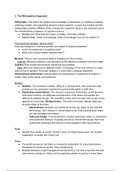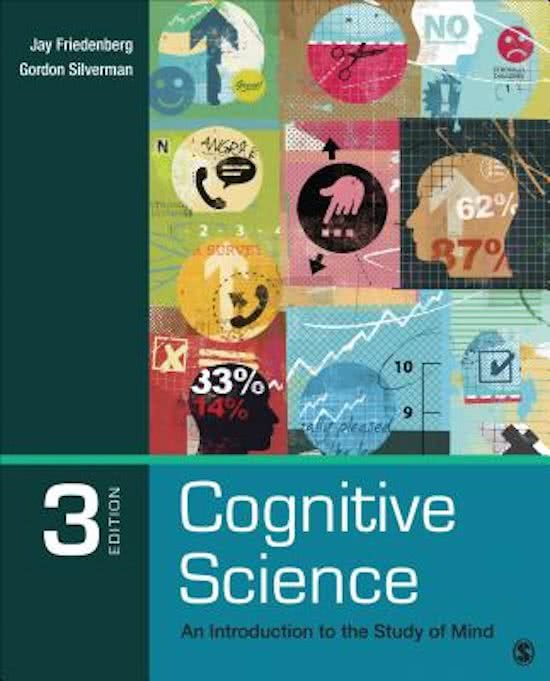Summary
Summary Cognitive Science, Third Edition, Chapters 2 - 6
A summary of chapters 2 - 6 of the book 'Cognitive Science, an introduction to the study of mind', Third Edition. Part of the course Artificial Intelligence at Utrecht University. The Philosophical Approach - The Psychological Approach - The Cognitive Approach I - The Cognitive Approach II - The Ne...
[Show more]
Preview 3 out of 27 pages
Summarized whole book?
No
Which chapters are summarized?
2, 3, 4, 5, 6
Uploaded on
September 26, 2017
Number of pages
27
Written in
2017/2018
Type
Summary
Book Title: Cognitive Science
Author(s): Jay D. Friedenberg, Dr. Gordon W. Silverman
Edition: december 2015 ISBN: 9781483347417 Edition: 1
Summary
Summary Cognitive Science - Introduction to Cognitive Science
Summary
Cognitive Science: An Introduction to the Study of Mind (Friedenberg, Silverman) C1-5
Summary
Summary: Cognitive Science, Third Edition, Chapters 7-13
All for this textbook (4)
Institution
Universiteit Utrecht (UU)
Education
Kunstmatige Intelligentie
Course
Inleiding tot de Cognitiewetenschap
All documents for this subject (15)
By: satnamhoonjan379 • 2 year ago
By: raspberryjungle • 2 year ago
By: nikolaylarin • 3 year ago
By: isabelvrielink20 • 5 year ago
By: daveeeeeyg • 6 year ago
$5.88
100% satisfaction guarantee
Immediately available after payment
Both online and in PDF
No strings attached
2. The Philosophical Approach





